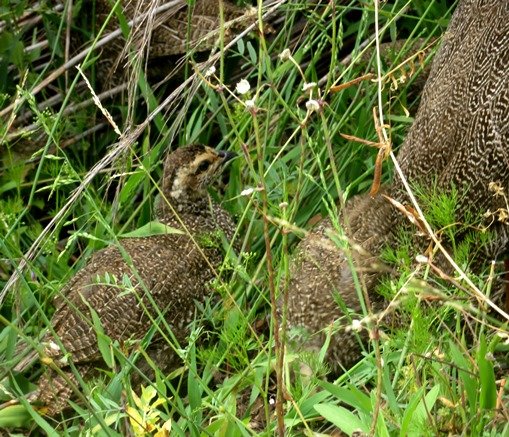Cape spurfowl chicks

Author: Ivan Lätti
Photographer: Thabo Maphisa
Well-known in a big part of the western fynbos, the Cape spurfowl may be tame and chicken-like in its habits or not, depending on its experience of people in its home surroundings. Scientifically known as Pternistis capensis and previously as Francolinus capensis, it is a gamebird of the pheasant family endemic to the southwestern Cape winter rainfall region.
At a distance the plumage is dark brown, close-up finely lined grey and white; the belly streaked white. The bill is dark, the legs red, orange or yellow. The sexes are similar, only the male has leg spurs.
Quite omnivorous, these spurfowls eat seeds and berries, leaves and shoots, bulbs and corms, insects and molluscs. It flies well but rarely.
Often seen in pairs, sometimes in coveys of up to twenty, the Cape spurfowl lives in open scrub, coastal or montane fynbos, usually near running water. The nest is a grass-lined scrape under a bush or rushes, sometimes two females sharing. One lays about seven eggs, pinkish to buff in colour, sometimes with few white spots. Incubation takes about 23 days.
These young ones, still with pale yellow stripes over the eyes, were spotted in Kirstenbosch following their mother, eating as they go (Maclean 1993; Wikipedia).

